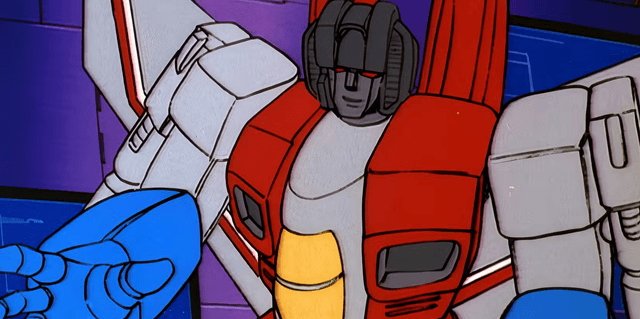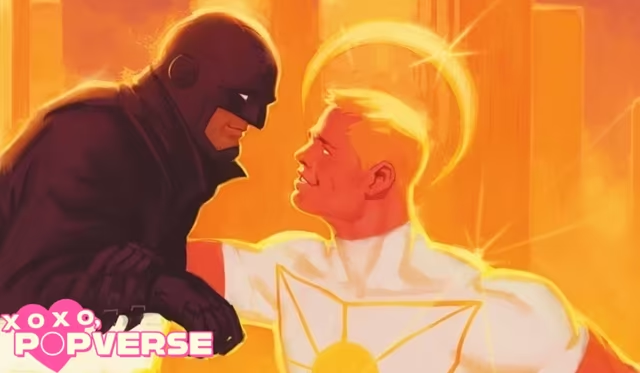If you click on a link and make a purchase we may receive a small commission. Read our editorial policy.
Nick Fury, Shang-Chi and Ms. Marvel: The MCU changing Marvel Comics characters like Agatha Harkness isn't a new phenomenon
The MCU's impact on Marvel Comics has been in effect long before Agatha All Along and WandaVision

Popverse's top stories
- Every Star Wars trilogy is really a bad romantasy story and you'll never convince me otherwise
- Midnighter and Apollo from DC Comics proved that fighting a tyrant together is incredibly romantic
- Members only: Ask Ming-Na Wen, Critical Role, Gail Simone, Karl Urban, Chris Claremont, Denys Cowan, and more your questions as part of ECCC x Popverse member exclusive!
The MCU's impact on Marvel Comics has been a hot topic amongst fans for years now. Most notably, the comic book version of Agatha Harkness has been brought back to life and de-aged to match her Kathryn Hahn counterpart first introduced in the Disney+ show, WandaVision. Before, Agatha Harkness in Marvel Comics had been a white-haired elderly woman. But now, Agatha's appearance in Marvel Comics is what some might call a "yassified" version of herself.
Considering that it's now been 15 years since the MCU first kicked off with Iron Man back in 2008, it's become more and more clear to longtime comic book fans that the MCU will continue to have an impact on Marvel Comics. Even Marvel Comics's executive editor, Tom Brevoort, isn't totally jazzed with the state of corporate synergy.
The fact of the matter, however, is that the MCU's effect on Marvel Comics is as old as the MCU itself. In the post-credits scene for 2008's Iron Man, Nick Fury, played by Samuel L. Jackson, makes his first appearance. In case you don't already know, Nick Fury in Marvel Comics has long been white. He was played by David Hasselhoff in the 1998 movie, Nick Fury: Agent of S.H.I.E.L.D. Sure, the version of Nick Fury featured in Mark Millar and Bryan Hitch's Ultimates series from 2002 was Black and was based off of Samuel L. Jackson, but it's a bit more complicated than that... but Nick Fury is not the only time that the MCU has changed the state of Marvel Comics. Let's take a look at Fury's case, as well as five other comic book characters who were changed by the MCU
Nick Fury: From Iron Man to Battle Scars

In the wake of the MCU's early success, Marvel Comics introduced a Black Nick Fury into its main continuity in 2012 with Battle Scars #1. It was revealed that the white Nick Fury fans had been reading all these years has a Black son, whose name is Nicholas Joseph Fury Jr. Just like his MCU counterpart, Nick Fury Jr. is bald and wears an eye patch. Today, Nick Fury Jr. has become the main Nick Fury within Marvel Comics' Earth-616, reflecting Samuel L. Jackson's influence.
Yelena Belova: From Villain to Anti-Hero

Yelena Belova, played by Florence Pugh, was the breakout character of 2021's Black Widow. Like Black Widow herself, Yelena doesn't exactly have a clean ledger, but she's still capable of being heroic. This was a change from her previous comic book appearances, where she was portrayed as a villainous counterpart to Natasha Romanoff. In the wake of the positive response to Pugh's sarcastic and funny portrayal of the character, Yelena's comic book self has become more humorous. In addition, she's not a villain anymore, though she still isn't a squeaky-clean hero like Spider-Man (and we wouldn't want her to be). If you want to get a sense of where she is these days in Marvel Comics, look no further than the White Widow mini-series by Sarah Gailey and Alessandro Miracolo from 2023.
Shang-Chi: From Fu Manchu to the Ten Rings

2021's Shang-Chi and the Legend of the Ten Rings provided a much-needed overhaul for the character. The Shang-Chi MCU film scrapped the racist aspects of the character's original backstory in comics. When Shang-Chi was first introduced in Marvel Comics back in 1973 (the same year that Bruce Lee died and Enter the Dragon was released), and his mother was a white British woman while his father was the racist stereotype, Fu Manchu. Yeah, I know. It's rough.
Thankfully, the Shang-Chi film rewrote his origin story. His mother was a Chinese martial artist who fell in love with a man named Xu Wenwu. This followed up on the work that writer Gene Luen Yang and artists Dike Ruan and Philip Tan had done on the character leading up to the film's release. Since then, Shang-Chi in the comics has been more in line with his MCU version, and is all the better for it.
Ms. Marvel: From Embiggening to Mutant

The changes to Ms. Marvel's character because of the MCU are some of the most controversial on this list. In G. Willow Wilson and Adrian Alphona's original run on the character, Kamala Khan had shapeshifting powers. Her powers externalized her struggles with her identity as a Pakistani American teenager, something that readers from the Asian American community and beyond could relate to. However, just weeks before the release of her Disney+ series in 2022, the comic book Ms. Marvel was killed off in The Amazing Spider-Man #26. The Ms. Marvel MCU show would later reveal that their version of Kamala is a mutant with energy-projection powers. The next year, she was resurrected in Marvel Comics, this time as a mutant. Since then, she has been a part of the X-Men relaunch in Marvel Comics, and currently appears in the book NYX.
Makkari and Ajak: From Male to Female...?

The release of Eternals in 2021 shook up the status quo of both the MCU and Marvel Comics. In the lead-up to the film, a new Eternals series by Kieron Gillen and Esad Ribić kicked off. In Gillen and Ribić's Eternals series, the characters Ajak and Makkari were female, matching how they were played by Salma Hayek and Lauren Ridloff in the Eternals film, respectively. Before, in earlier Eternals comics, both Ajak and Makkari were male. Since then, this new status quo has stuck.
Consider this a meta post-credits scene for Marvel fans - the four key articles you need to read next to continue the thrills:
Follow Popverse for upcoming event coverage and news
Find out how we conduct our review by reading our review policy
Let Popverse be your tour guide through the wilderness of pop culture
Sign in and let us help you find your new favorite thing.
















Comments
Want to join the discussion? Please activate your account first.
Visit Reedpop ID if you need to resend the confirmation email.